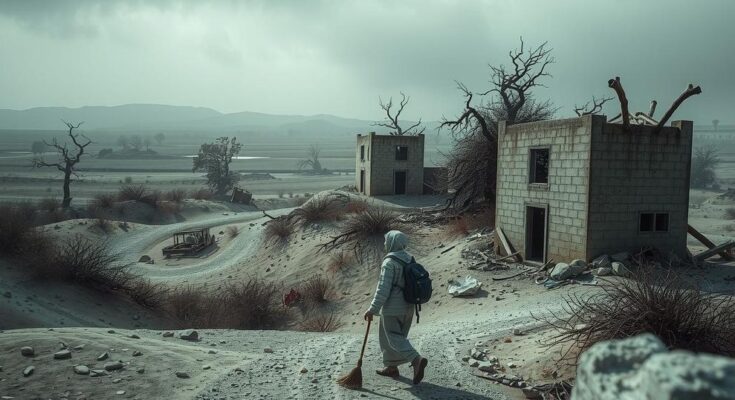UN Secretary-General António Guterres voiced concerns over M23 rebel offensives in eastern DRC, highlighting their significant impact on civilians and regional stability. He called for an immediate halt to the violence and respect for the sovereignty of the DRC, urging all parties to adhere to ceasefire agreements and engage in peace processes. The humanitarian crisis resulting from recent clashes necessitates urgent attention and support for affected populations.
The Secretary-General of the United Nations, António Guterres, expressed profound concern on Thursday regarding the resurgence of M23 rebel offensives in the eastern Democratic Republic of the Congo (DRC). He indicated that this surge has inflicted a devastating impact on civilians. Guterres specifically highlighted the rebels’ capture of Sake in South Kivu, which exacerbates the threat to the nearby regional capital, Goma, potentially escalating into a regional conflict. Though Rwanda has denied involvement, tensions continue to rise amid accusations of Rwandan support for the rebels.
Since the withdrawal of United Nations peacekeeping forces from South Kivu in June 2024, remaining troops have been pivotal in safeguarding critical locations within North Kivu, where clashes between M23, Congolese armed forces, and other armed factions have persisted. Recent hostilities near Minova resulted in at least ten fatalities, displacing over 250,000 individuals toward safer locations such as Kalehe and Goma. The UN peacekeeping mission, MONUSCO, voiced alarm over these developments.
Guterres called for an immediate cessation of the M23 offensive and compliance with the ceasefire agreement established on July 31, 2024. He expressed grave concern over reports indicating the presence of Rwandan troops in the DRC and urged all conflicting parties to respect the DRC’s sovereignty. Emphasizing the need to cease all assistance to armed groups, including foreign ones, he reiterated the importance of regional integrity.
Furthermore, Guterres reaffirmed strong support for the Luanda peace process, spearheaded by President João Lourenço of Angola, which aims to lessen tensions between the DRC and Rwanda. This mediation initiative commenced in June 2022, and he acknowledged the progress made thus far. Guterres urged all combatants to engage constructively with this peace process, stressing the need for the neutralization of the FDLR and the withdrawal of Rwandan forces, alongside the operationalization of verification mechanisms.
Human rights and the protection of civilians remain paramount, as highlighted by Guterres, who called on all factions to ensure unfettered access to humanitarian assistance for those in need. He reiterated MONUSCO’s commitment to protect civilians and condemned any action that threatens the safety of UN personnel and civilians.
The Democratic Republic of the Congo has been facing unrest from various armed groups, notably the M23 rebels, who have been blamed for violence and humanitarian crises in the region. The United Nations has been involved in peacekeeping efforts to stabilize the situation, particularly in the volatile eastern provinces. The presence of foreign troops, including alleged Rwandan forces, has compounded the conflict, threatening to escalate tensions between the DRC and its neighbors. Diplomatic efforts, like the Luanda peace process, are essential for addressing these complexities and restoring peace.
In summary, António Guterres has urgently called for an end to the M23 offensive in the DRC, citing its catastrophic effects on civilians and regional stability. His appeal underscores the need for adherence to previous ceasefire agreements and the importance of respecting the DRC’s sovereignty. Guterres’ support for amicable negotiation processes remains crucial in achieving long-term peace and security in the region, while he highlights urgent humanitarian concerns that must be addressed amidst ongoing conflict.
Original Source: news.un.org




